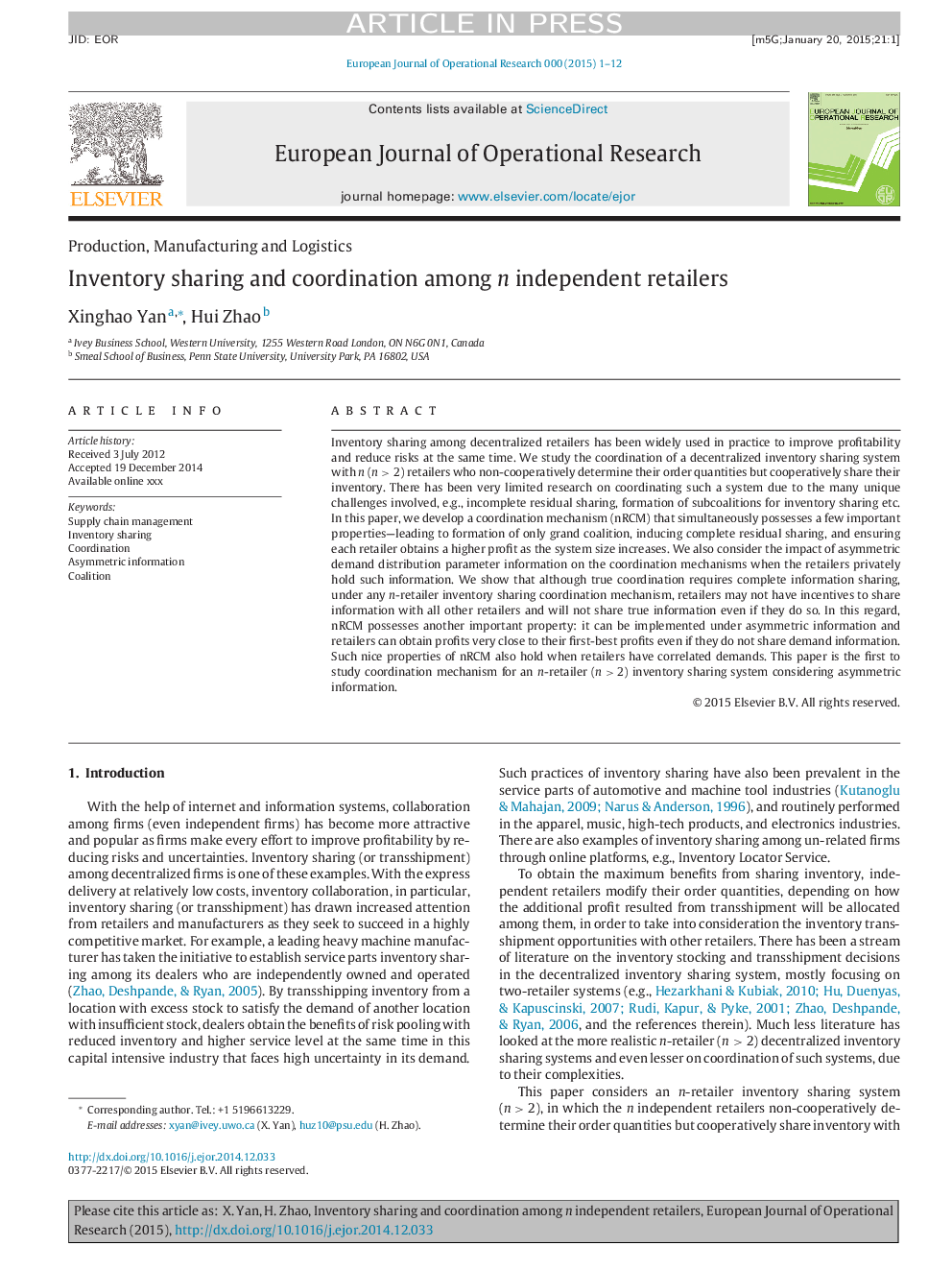| Article ID | Journal | Published Year | Pages | File Type |
|---|---|---|---|---|
| 6896822 | European Journal of Operational Research | 2015 | 12 Pages |
Abstract
Inventory sharing among decentralized retailers has been widely used in practice to improve profitability and reduce risks at the same time. We study the coordination of a decentralized inventory sharing system with n (n > 2) retailers who non-cooperatively determine their order quantities but cooperatively share their inventory. There has been very limited research on coordinating such a system due to the many unique challenges involved, e.g., incomplete residual sharing, formation of subcoalitions for inventory sharing etc. In this paper, we develop a coordination mechanism (nRCM) that simultaneously possesses a few important properties-leading to formation of only grand coalition, inducing complete residual sharing, and ensuring each retailer obtains a higher profit as the system size increases. We also consider the impact of asymmetric demand distribution parameter information on the coordination mechanisms when the retailers privately hold such information. We show that although true coordination requires complete information sharing, under any n-retailer inventory sharing coordination mechanism, retailers may not have incentives to share information with all other retailers and will not share true information even if they do so. In this regard, nRCM possesses another important property: it can be implemented under asymmetric information and retailers can obtain profits very close to their first-best profits even if they do not share demand information. Such nice properties of nRCM also hold when retailers have correlated demands. This paper is the first to study coordination mechanism for an n-retailer (n > 2) inventory sharing system considering asymmetric information.
Related Topics
Physical Sciences and Engineering
Computer Science
Computer Science (General)
Authors
Xinghao Yan, Hui Zhao,
